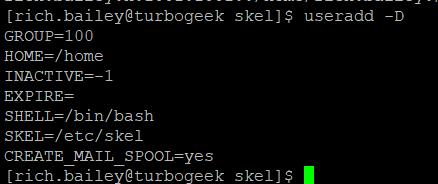How To Find A File in Linux
In Linux, you can use the find command to search for files and directories within the file system. The find command provides a wide range of search options, such as searching by file name, size, type, and modification time. Here’s how you can use the find command to find a file in Linux:
- Open your terminal.
- Navigate to the directory where you want to start your search. For example, if you wish to search for a file within your home directory, you can type
cd ~to go to your home directory. - Type the following command to search for the file by name:
find . -name "filename". Replace “filename” with the file name you want to search for. - Press Enter.
The find the command will search for the file in the current directory and all its subdirectories. If the file is found, the order will display the path and name of the file.
For example, if you want to find a file called “example.txt” within your home directory, you can type the following command:
find . -name "example.txt"After pressing Enter, the command will search for the file “example.txt” in the current directory and all its subdirectories. The order will display its path and name if the file is found.
Note that the find the command provides many other search options, such as selecting files by type, size, modification time, etc. You can learn more about the find command and its search options by typing man find in your terminal.
Advanced Examples
here are some advanced examples of using the find command in Linux:
- Search for files of a specific type: You can use the
-typeoption followed by the type of file you want to search for. For example, to search for all the PDF files in your home directory and its subdirectories, you can use the following command:
find ~/ -type f -name "*.pdf"This command will search for all the regular files (-type f) with a name ending in “.pdf” (-name "*.pdf") in your home directory and its subdirectories (~/).
- Search for files modified within a specific time frame: You can use the option followed by the number of days to search for files modified within a particular time frame. For example, to search for all the files modified in the last seven days in your home directory and its subdirectories, you can use the following command:
find ~/ -type f -mtime -7This command will search for all the regular files (-type f) that have been modified within the last 7 days (-mtime -7) in your home directory and its subdirectories (~/).
- Search for files with specific permissions: You can use the
-permoption followed by the permission code to search for files with specific permissions. For example, to search for all the files in your home directory and its subdirectories that have read, write, and execute permissions for the owner, you can use the following command:
find ~/ -type f -perm 700This command will search for all the regular files (-type f) in your home directory and its subdirectories (~/) that have read, write, and execute permissions for the owner (-perm 700).
These are just a few examples of the many advanced options available with the find command. Combining various options allows you to create complex search criteria to find the files you’re looking for.
mlocate
mlocate is another command-line tool in Linux that can be used to locate files and directories. It works by creating and updating a file system database, which makes the search process much faster than using the find command.
To use mlocate, you first need to make sure it is installed on your system. You can do this by running the following command:
sudo apt-get install mlocateOnce mlocate is installed, you can update its database by running the following command:
sudo updatedbAfter the database is updated, you can use the locate command to search for files and directories. For example, to search for all the files with the name “example” in the file system, you can use the following command:
locate exampleThis command will search for all the files named “example” in the file system and display their paths.
Note that mlocate is generally faster than the find command when searching for files, especially when searching for files with common names or extensions. However, mlocate does not provide as many search options as the find command, so it may not be as versatile in certain situations.
In summary, mlocate is a useful tool for quickly searching for files and directories in Linux, especially when dealing with large file systems. However, it may not be suitable for more complex searches that require advanced search options.
FAQ on How To Find A File in Linux
Question 1: What is the command to find a file in Linux?
There are several commands to find a file in Linux; the most commonly used are ‘find’ and ‘locate’.
Question 2: How do I search for a file by name?
Use the ‘find’ command followed by the file name. For example, to find a file named ‘example.txt’, type ‘find / -name example.txt’.
Question 3: How do I search for all files with a specific extension?
Use the ‘find’ command followed by the extension. For example, to find all files with a .txt extension, type ‘find / -name “*.txt”‘.
Question 4: How do I search for a file by its content?
Use the ‘grep’ command followed by the file name and the search term. For example, to find all files containing the word ‘example’, type ‘grep -r “example” /’.
Question 5: How do I make a search case-insensitive?
Use the ‘-i’ flag with the ‘grep’ command. For example, to find all files containing the word ‘example’ regardless of case, type ‘grep -ir “example” /’.
Want to learn more Linux facts? Check out the rest of our Tech Quicky content!!




Recent Comments